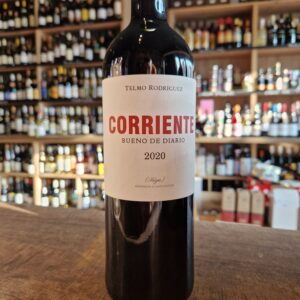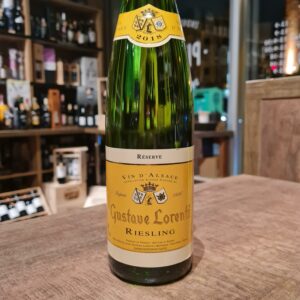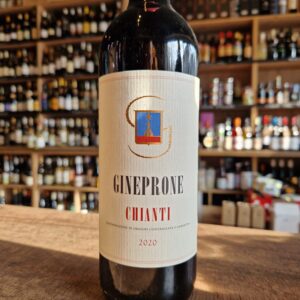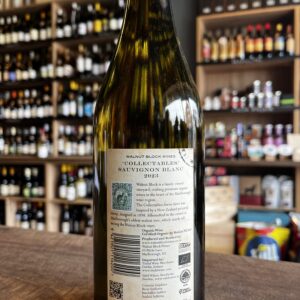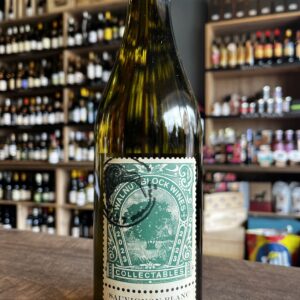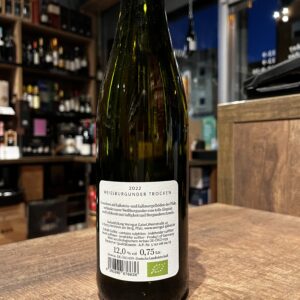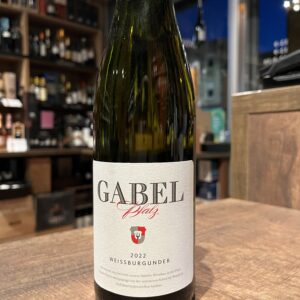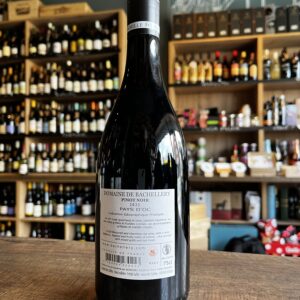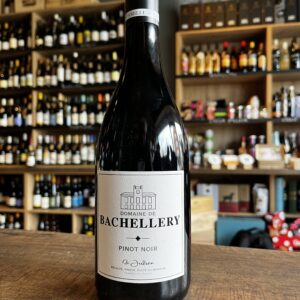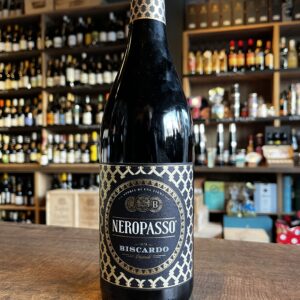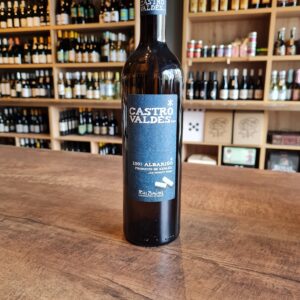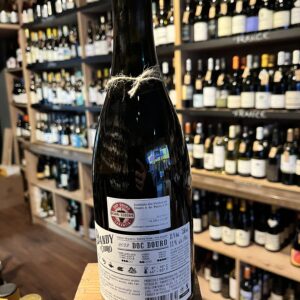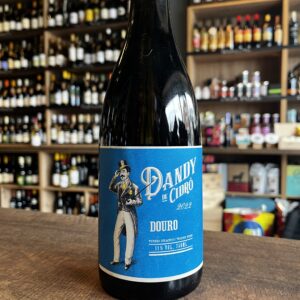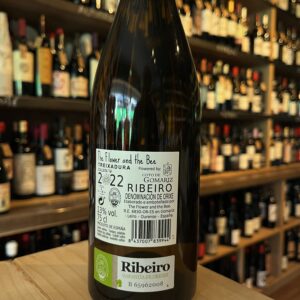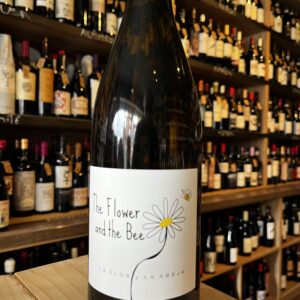-
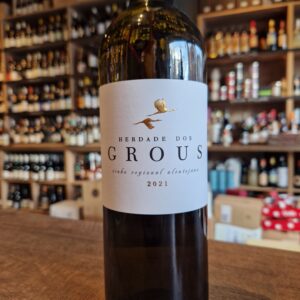 Created from scratch in the Alentejo landscape, you will find Herdade dos Grous. In Albernoa, 17 km from Beja, Herdade dos Grous brings together the production of wine, livestock, rural tourism and wine tourism. Alentejo, Portugal’s largest province holds the traditional Portuguese charm and a Moorish heritage, which can be seen in all its architecture. Its Continental climate with Mediterranean influences, offers ideal conditions for the production of fantastic wines and extremely high quality regional products. The establishment of the estate and the cultivation of the vines (1987), as well as the design of a state-of-the-art wine cellar (built in 2005) are all based on the latest findings in high-end viticulture. ’Herdade dos Grous’ represents the current pioneering spirit of Portugal’s wine-growing business like no other estate. We recommend serving this wine with seafood, poultry or pasta carbonara. Ideal serving temperature is 10 to 12°C
Created from scratch in the Alentejo landscape, you will find Herdade dos Grous. In Albernoa, 17 km from Beja, Herdade dos Grous brings together the production of wine, livestock, rural tourism and wine tourism. Alentejo, Portugal’s largest province holds the traditional Portuguese charm and a Moorish heritage, which can be seen in all its architecture. Its Continental climate with Mediterranean influences, offers ideal conditions for the production of fantastic wines and extremely high quality regional products. The establishment of the estate and the cultivation of the vines (1987), as well as the design of a state-of-the-art wine cellar (built in 2005) are all based on the latest findings in high-end viticulture. ’Herdade dos Grous’ represents the current pioneering spirit of Portugal’s wine-growing business like no other estate. We recommend serving this wine with seafood, poultry or pasta carbonara. Ideal serving temperature is 10 to 12°C -
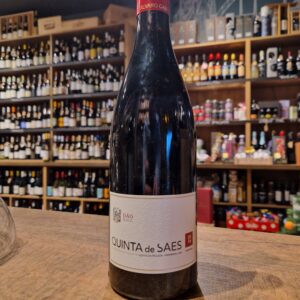 Dão is quickly becoming the most sought-after region for Portuguese winemakers to venture into; according to many, it’s one of the world’s most perfect microclimates: mountains protect it from continental heat to the east and Douro’s heat to north, and cool Atlantic breezes come inland to keep the overall temperatures more regulated, making for wines with bright acidity, ethereal aromatics, and compelling complexity. The DO’s granitic soils allow indigenous grapes to shine through in the wines, and provide firm, crunchy tannin against the bright fruit. Alvaro Castro has noted that “if God were to design a wine-growing region, what he would come up with would look a lot like the Dão.” There is no modern Dão without one of the region’s longtime legends, Alvaro Castro, whose estate encompasses two small properties (or “quintas”) known as Pellada and Saes. Alvaro makes wine here with his daughter Maria, carrying on a tradition of winemaking on this property that dates to the 16th century! Together, they have resisted the internationalization push of the ‘80s and ‘90s, instead doubling down on their slow-wine approach, using local varieties grown and crafted in the true Dāo “field blend” style. The Dão is home to the finest plantings of Touriga Naçional in Portugal. The microclimate that protects it from the extreme heat of the eastern winds and the overly wet conditions to the north and west provides a cool, temperate setting for Touriga to showcase its hallmark rose petal aromatics and soft fruit. Aged in neutral oak, this is a pure, unadulterated expression of Dão Touriga. Average age of 15 years. Tended in granite and clay soil at 550m (1811ft) elevation. Pair with roast pork, lighter game like rabbit and quail, and mushroom dishes.
Dão is quickly becoming the most sought-after region for Portuguese winemakers to venture into; according to many, it’s one of the world’s most perfect microclimates: mountains protect it from continental heat to the east and Douro’s heat to north, and cool Atlantic breezes come inland to keep the overall temperatures more regulated, making for wines with bright acidity, ethereal aromatics, and compelling complexity. The DO’s granitic soils allow indigenous grapes to shine through in the wines, and provide firm, crunchy tannin against the bright fruit. Alvaro Castro has noted that “if God were to design a wine-growing region, what he would come up with would look a lot like the Dão.” There is no modern Dão without one of the region’s longtime legends, Alvaro Castro, whose estate encompasses two small properties (or “quintas”) known as Pellada and Saes. Alvaro makes wine here with his daughter Maria, carrying on a tradition of winemaking on this property that dates to the 16th century! Together, they have resisted the internationalization push of the ‘80s and ‘90s, instead doubling down on their slow-wine approach, using local varieties grown and crafted in the true Dāo “field blend” style. The Dão is home to the finest plantings of Touriga Naçional in Portugal. The microclimate that protects it from the extreme heat of the eastern winds and the overly wet conditions to the north and west provides a cool, temperate setting for Touriga to showcase its hallmark rose petal aromatics and soft fruit. Aged in neutral oak, this is a pure, unadulterated expression of Dão Touriga. Average age of 15 years. Tended in granite and clay soil at 550m (1811ft) elevation. Pair with roast pork, lighter game like rabbit and quail, and mushroom dishes. -
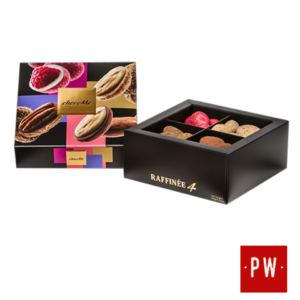 All the best Raffinée can offer in one exclusive selection - that's what Raffinée 4 is all about. We put together this diverse assortment of four of our most characteristic, multiple award-winning creations, reviewed by professional jury teams, for your enjoyment. Almonds from Avola coated with milk chocolate and tonka beans Freeze-dried raspberry coated with white chocolate Sicilian almonds coated with Guérande salty blonde chocolate and crispy wafer Pecans covered in milk chocolate mixed with caramel and salted vanilla powder from Tahiti
All the best Raffinée can offer in one exclusive selection - that's what Raffinée 4 is all about. We put together this diverse assortment of four of our most characteristic, multiple award-winning creations, reviewed by professional jury teams, for your enjoyment. Almonds from Avola coated with milk chocolate and tonka beans Freeze-dried raspberry coated with white chocolate Sicilian almonds coated with Guérande salty blonde chocolate and crispy wafer Pecans covered in milk chocolate mixed with caramel and salted vanilla powder from Tahiti -
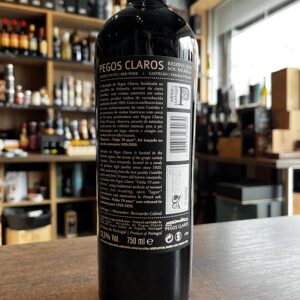
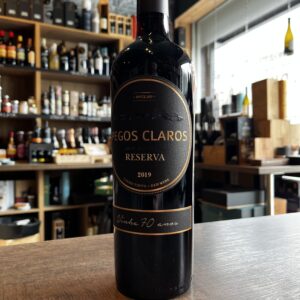 Producing quality wines since 1920, Pegos Claros Estate Farm was responsible in the 90s for the production of wines which became national and international references of the best wines produced as DOC Palmela. Harvesting done manually followed by fermentation with traditional foot treading in open “lagar”, oak ageing and exclusively from old vines. Produced from autochthonous red grapes of Castelão from Palmela Region, Pegos Claros Reserva is a red wine that reveals itself with defined maturity, with well-marked black fruits aromas in its aromatic bouquet, balsamic notes, and spices. It is a complex red wine with good acidity and a very elegant structure. Pairs well with grilled meat and roasted fish and meat.
Producing quality wines since 1920, Pegos Claros Estate Farm was responsible in the 90s for the production of wines which became national and international references of the best wines produced as DOC Palmela. Harvesting done manually followed by fermentation with traditional foot treading in open “lagar”, oak ageing and exclusively from old vines. Produced from autochthonous red grapes of Castelão from Palmela Region, Pegos Claros Reserva is a red wine that reveals itself with defined maturity, with well-marked black fruits aromas in its aromatic bouquet, balsamic notes, and spices. It is a complex red wine with good acidity and a very elegant structure. Pairs well with grilled meat and roasted fish and meat. -
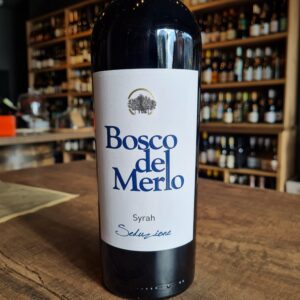 The Syrah is an international grape variety famous for its spicy notes that Bosco del Merlo interprets with great elegance. The grapes are harvest at optimally maturity during the last days of September. This Syrah ''Seduzione'' is large and round wine with great character. Enveloping and very pleasant for its harmony and wideness. Ideal for all meals, excellent with dishes of boiled and baked meats. Perfect with cold cuts and cheeses of medium maturing and insuperable alone, after dinner or in company.
The Syrah is an international grape variety famous for its spicy notes that Bosco del Merlo interprets with great elegance. The grapes are harvest at optimally maturity during the last days of September. This Syrah ''Seduzione'' is large and round wine with great character. Enveloping and very pleasant for its harmony and wideness. Ideal for all meals, excellent with dishes of boiled and baked meats. Perfect with cold cuts and cheeses of medium maturing and insuperable alone, after dinner or in company. -
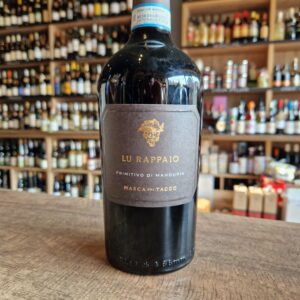 Primitivo is practically synonymous with Puglia and the south of Italy. If you truly want to experience the quality of a fine Primitivo di Manduria, try this wine. It must be said that the Primitivo di Manduria is slightly different from the rest of Puglia. Manduria has a privileged location, right in the middle of the Salento peninsula.This allows the marine breeze coming from both the Adriatic Sea and the Ionian Sea to refresh the vineyard. The soil is composed of limestone with iron oxide fossils, giving it a distinctive red color. This soil is also known as Terra Rossa and it is typical of the Mediterranean region.The climate is ideal too, with mild winters and extremely hot summers and according to Decanter, "Primitivo is the most sun-loving grape I have seen." It goes well with dark and white meat from the grill or from the oven. Also a pleasant red wine with pasta dishes with spicy sauces as well as spicy cheeses. Its elegance and structure make it a perfect wine for romantic evenings or important dinners
Primitivo is practically synonymous with Puglia and the south of Italy. If you truly want to experience the quality of a fine Primitivo di Manduria, try this wine. It must be said that the Primitivo di Manduria is slightly different from the rest of Puglia. Manduria has a privileged location, right in the middle of the Salento peninsula.This allows the marine breeze coming from both the Adriatic Sea and the Ionian Sea to refresh the vineyard. The soil is composed of limestone with iron oxide fossils, giving it a distinctive red color. This soil is also known as Terra Rossa and it is typical of the Mediterranean region.The climate is ideal too, with mild winters and extremely hot summers and according to Decanter, "Primitivo is the most sun-loving grape I have seen." It goes well with dark and white meat from the grill or from the oven. Also a pleasant red wine with pasta dishes with spicy sauces as well as spicy cheeses. Its elegance and structure make it a perfect wine for romantic evenings or important dinners -
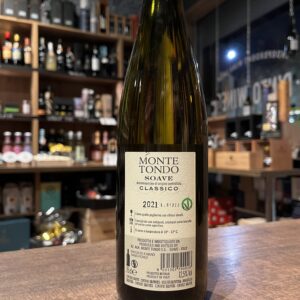
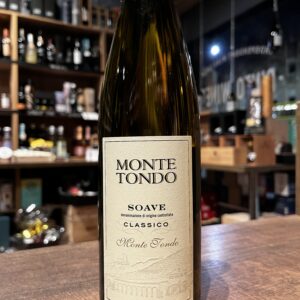
Monte Tondo is a family estate located in the beautiful hillside vineyards of Soave. Here the soils range from volcanic to chalky, which alongside the varying microclimates, gives the wines distinct flavour characteristics and individualistic style.
Alongside his family, winemaker Gino Magnabosco is part of the third generation to run the estate. They believe that hard work, drive, and determination are key to obtaining the best results from their land. Maintaining, nourishing, and cherishing the land of their ancestors is of utmost importance. And although not certified, they farm using organic practices and an environmentally friendly approach to both viticulture and vinification. No chemicals are used in their production and they recycle everything excess coming from the vineyard (stems as fertilizers, skins for grappa, pruned branches for heating and fertilizer).
Small proportions of other varieties are allowed in the production of Soave, but Monte Tondo focus their concentration purely on Garganega. Garganega is a variety so versatile and easily culinary matched but also with the ability to produce complex wines with age-ability.
A very good example of Soave at a very good price. This over-delivers.. Perfect with salads and light fish and shellfish dishes.
-
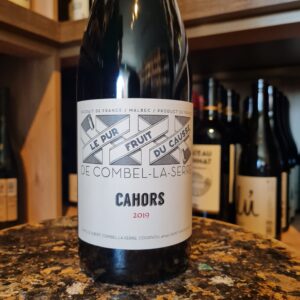 This lovely organic red is made from 100% Malbec (called Auxerrois in Cahors), ferments with indigenous yeasts, and ages in cement. This is a fruit-forward, easy-drinking style made for immediate consumption. And as soon as you pop a bottle, you'll see why "immediate" is the term they use. It's too tasty to wait, so enjoy it!
This lovely organic red is made from 100% Malbec (called Auxerrois in Cahors), ferments with indigenous yeasts, and ages in cement. This is a fruit-forward, easy-drinking style made for immediate consumption. And as soon as you pop a bottle, you'll see why "immediate" is the term they use. It's too tasty to wait, so enjoy it! -
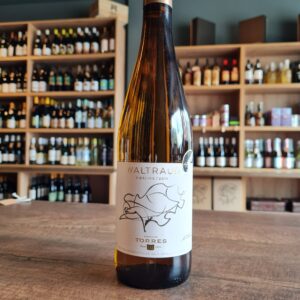 Waltraud is made with the best harvests of Riesling, which is one of the most highly prized aromatic varieties - and rightly so given that it is capable of producing such an elegantly sublime and magnificently fruity wine as this. Waltraud Maczassek, of German nationality, put down roots in the Penedès region when she married Miguel A. Torres. That's why he decided to make a wine in her honour, using German varieties but planted in the Upper Penedes. The wine has a luminous gold color. On the nose reminiscent of orange blossom, jasmine, quince and pineapple. Elegant, firm-bodied and silky, with echoes of spice bread on the finish. Pairs beautifully with oysters and shellfish. Sublime in combination with fish, rice dishes, pasta with mariniere sauce, duck in sweet sauce.
Waltraud is made with the best harvests of Riesling, which is one of the most highly prized aromatic varieties - and rightly so given that it is capable of producing such an elegantly sublime and magnificently fruity wine as this. Waltraud Maczassek, of German nationality, put down roots in the Penedès region when she married Miguel A. Torres. That's why he decided to make a wine in her honour, using German varieties but planted in the Upper Penedes. The wine has a luminous gold color. On the nose reminiscent of orange blossom, jasmine, quince and pineapple. Elegant, firm-bodied and silky, with echoes of spice bread on the finish. Pairs beautifully with oysters and shellfish. Sublime in combination with fish, rice dishes, pasta with mariniere sauce, duck in sweet sauce. -
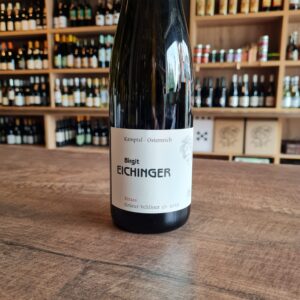 Weingut Birgit Eichinger was founded in 1992 by Birgit Eichinger and her husband Christian, who started out with roughly nine acres of vineyards shed from her parents' business, over time the vineyard area was expanded to 23 acres in the best traditional sites of Strass. This is a single-vineyard Grüner, from a vineyard whose loess (loose and sandy) soils and southward face are perfect for the cultivation of traditional Kamptal-style Grüner. The Birgit Eichinger Grüner Veltliner Strass Kamptal impresses with its elegantly dry taste. It was put on the bottle with only 1.8 grams of residual sugar. As one can of course expect with a wine, this Austrian naturally enchants with the finest balance in all dryness. Taste doesn't necessarily need sugar. On the palate, the texture of this light-footed white wine is wonderfully light. Due to the balanced fruit acidity, the Grüner Veltliner Rhinestone Kamptal flatters with velvety mouthfeel, without missing out on juicy liveliness. The finish comes with mineral notes of the soils dominated by loess soil and sandstone.
Weingut Birgit Eichinger was founded in 1992 by Birgit Eichinger and her husband Christian, who started out with roughly nine acres of vineyards shed from her parents' business, over time the vineyard area was expanded to 23 acres in the best traditional sites of Strass. This is a single-vineyard Grüner, from a vineyard whose loess (loose and sandy) soils and southward face are perfect for the cultivation of traditional Kamptal-style Grüner. The Birgit Eichinger Grüner Veltliner Strass Kamptal impresses with its elegantly dry taste. It was put on the bottle with only 1.8 grams of residual sugar. As one can of course expect with a wine, this Austrian naturally enchants with the finest balance in all dryness. Taste doesn't necessarily need sugar. On the palate, the texture of this light-footed white wine is wonderfully light. Due to the balanced fruit acidity, the Grüner Veltliner Rhinestone Kamptal flatters with velvety mouthfeel, without missing out on juicy liveliness. The finish comes with mineral notes of the soils dominated by loess soil and sandstone. -
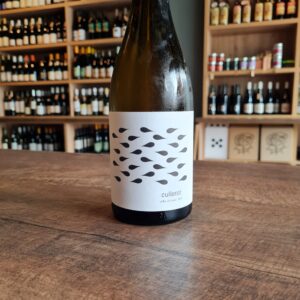 Celler del Roure is making very interesting wines with local grape varieties in the Valencia area. Many of these old, indigenous varieties are largely forgotten and Cullerot highlights three of them (Verdil, Tortosina, and Merseguera) together with Pedro Ximénez, Macabeo, Malvasía, and others. In addition to their focus on indigenous grape varieties, Celler del Roure is employing traditional vinifications methods: hand harvesting, fermenting with native yeasts in stone lagars, and aging in very old clay amphorae. Cullerot has a bit of skin contact, and is medium bodied with notes of stone fruit, tropical notes, apple skin, and clay-y minerality. A great, truly interesting, "almost-orange" skin contact white wine, for less than €20.
Celler del Roure is making very interesting wines with local grape varieties in the Valencia area. Many of these old, indigenous varieties are largely forgotten and Cullerot highlights three of them (Verdil, Tortosina, and Merseguera) together with Pedro Ximénez, Macabeo, Malvasía, and others. In addition to their focus on indigenous grape varieties, Celler del Roure is employing traditional vinifications methods: hand harvesting, fermenting with native yeasts in stone lagars, and aging in very old clay amphorae. Cullerot has a bit of skin contact, and is medium bodied with notes of stone fruit, tropical notes, apple skin, and clay-y minerality. A great, truly interesting, "almost-orange" skin contact white wine, for less than €20. -
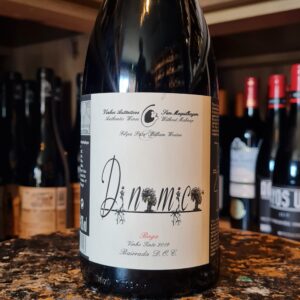 Filipa Pato is the confirmation of the old saying "son of fish knows how to swim". Although she followed the footsteps of her father Luís Pato, even in her academic training, Filipa always wanted to have her own world, her own project, where she would show her ideas, and go up with her own pulse. It was the 2001 harvest, a great year in Bairrada, which would provide all of this. That year, she decided to walk on her own feet, creating her dream. The success was immediate, and soon she rose to the status of one of the most brilliant winemakers in Portugal. The wines are the result of Filipa's innovative and brilliant spirit. They were quickly at the forefront of national and international criticism. In 2011, with her husband William Wouters, a prestigious Belgian Sommelier and owner of the Pazzo restaurant in Antwerp, Filipa receives the title "Newcomer of the year".
Filipa Pato is the confirmation of the old saying "son of fish knows how to swim". Although she followed the footsteps of her father Luís Pato, even in her academic training, Filipa always wanted to have her own world, her own project, where she would show her ideas, and go up with her own pulse. It was the 2001 harvest, a great year in Bairrada, which would provide all of this. That year, she decided to walk on her own feet, creating her dream. The success was immediate, and soon she rose to the status of one of the most brilliant winemakers in Portugal. The wines are the result of Filipa's innovative and brilliant spirit. They were quickly at the forefront of national and international criticism. In 2011, with her husband William Wouters, a prestigious Belgian Sommelier and owner of the Pazzo restaurant in Antwerp, Filipa receives the title "Newcomer of the year". -
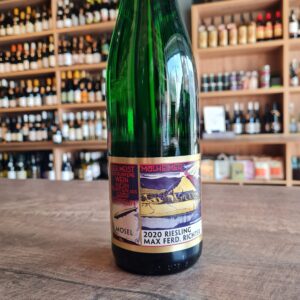 Max Ferdinand Richter winery produces this classic off-dry Mosel Riesling from the Mulheimer Sonnenlay vineyard. The bottle features a beautiful Art Deco label depicting the Zeppelin airships upon which this Riesling was served in the 1920's and 30's. "The Mülheimer Sonnenlay is the largest single Richter vineyard and the source of the world-renowned “Zeppelin” Riesling. The vineyard sits on the west-southwestern side of a slate stone hill south of Mülheim, a dry riverbed formed during the last ice age 250,000 years ago. The name of the vineyard– Sonne (sunshine) and lay (slate stone) –perfectly describes the characteristics of the site. This often extremely steep vineyard has a loose slate stone soil structure that is enriched by pebbles, loam and sand deposited by the ancient river. This kind of soil creates wines that combine typical slate stone mineral character with animated and elegant fruitiness." When possible, they utilize natural yeasts and eschew chemical fining agents. Max Ferdinand Richter’s 48 steep acres are spread out in the Middle Mosel Valley between Erden and Brauneberg. Plantings consist of 95% Riesling and 5% Pinot Blanc grapes. The average age of Richter vines is 40 years. "Wines from the Mülheimer Sonnenlay were served on the luxurious Zeppelin airships -including the Hindenburg - in the 1920s and 30s. Local growers, proud of this distinction, commissioned Bauhaus artist Hans Schlösser to design a label for the wine incorporating the iconic Zeppelin airship. The label is still featured today."
Max Ferdinand Richter winery produces this classic off-dry Mosel Riesling from the Mulheimer Sonnenlay vineyard. The bottle features a beautiful Art Deco label depicting the Zeppelin airships upon which this Riesling was served in the 1920's and 30's. "The Mülheimer Sonnenlay is the largest single Richter vineyard and the source of the world-renowned “Zeppelin” Riesling. The vineyard sits on the west-southwestern side of a slate stone hill south of Mülheim, a dry riverbed formed during the last ice age 250,000 years ago. The name of the vineyard– Sonne (sunshine) and lay (slate stone) –perfectly describes the characteristics of the site. This often extremely steep vineyard has a loose slate stone soil structure that is enriched by pebbles, loam and sand deposited by the ancient river. This kind of soil creates wines that combine typical slate stone mineral character with animated and elegant fruitiness." When possible, they utilize natural yeasts and eschew chemical fining agents. Max Ferdinand Richter’s 48 steep acres are spread out in the Middle Mosel Valley between Erden and Brauneberg. Plantings consist of 95% Riesling and 5% Pinot Blanc grapes. The average age of Richter vines is 40 years. "Wines from the Mülheimer Sonnenlay were served on the luxurious Zeppelin airships -including the Hindenburg - in the 1920s and 30s. Local growers, proud of this distinction, commissioned Bauhaus artist Hans Schlösser to design a label for the wine incorporating the iconic Zeppelin airship. The label is still featured today." -
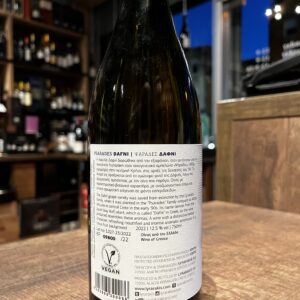
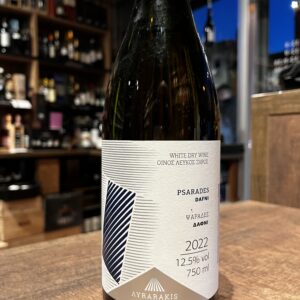 The Dafni grape variety was saved from extiction by the Lyrarakis family, when it was planted in the ''Psarades'' family vineyard at 480m altitude in central Crete in the early 90's. It's name derives from the laurel (bay leaf) plant, which its called ''Dafni'' in Greek, as the wines produced resembles these aromas. Pair with fried small Fish, seafood like cuttlefish with spinach, white meat, pulses and pies with greens and aromatic herbs
The Dafni grape variety was saved from extiction by the Lyrarakis family, when it was planted in the ''Psarades'' family vineyard at 480m altitude in central Crete in the early 90's. It's name derives from the laurel (bay leaf) plant, which its called ''Dafni'' in Greek, as the wines produced resembles these aromas. Pair with fried small Fish, seafood like cuttlefish with spinach, white meat, pulses and pies with greens and aromatic herbs


